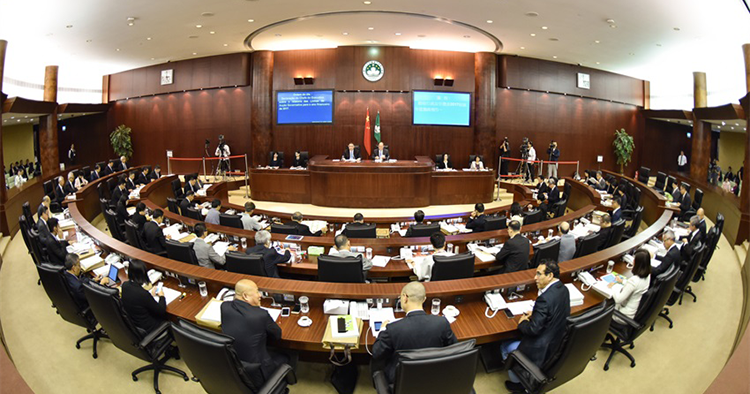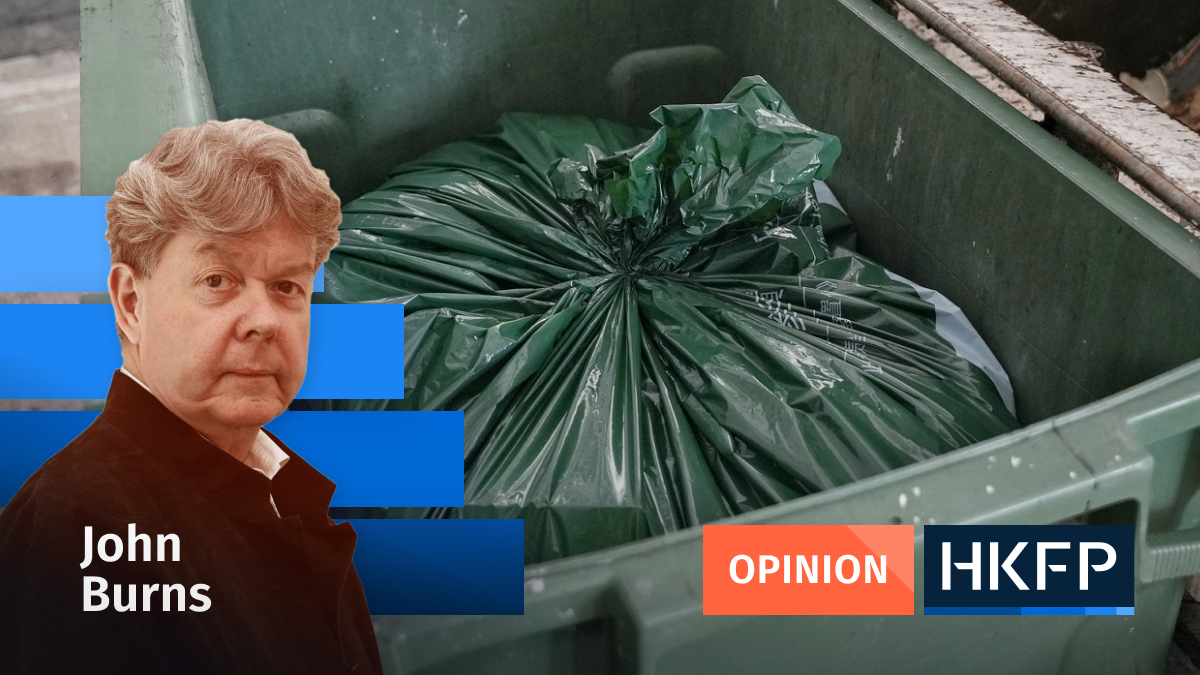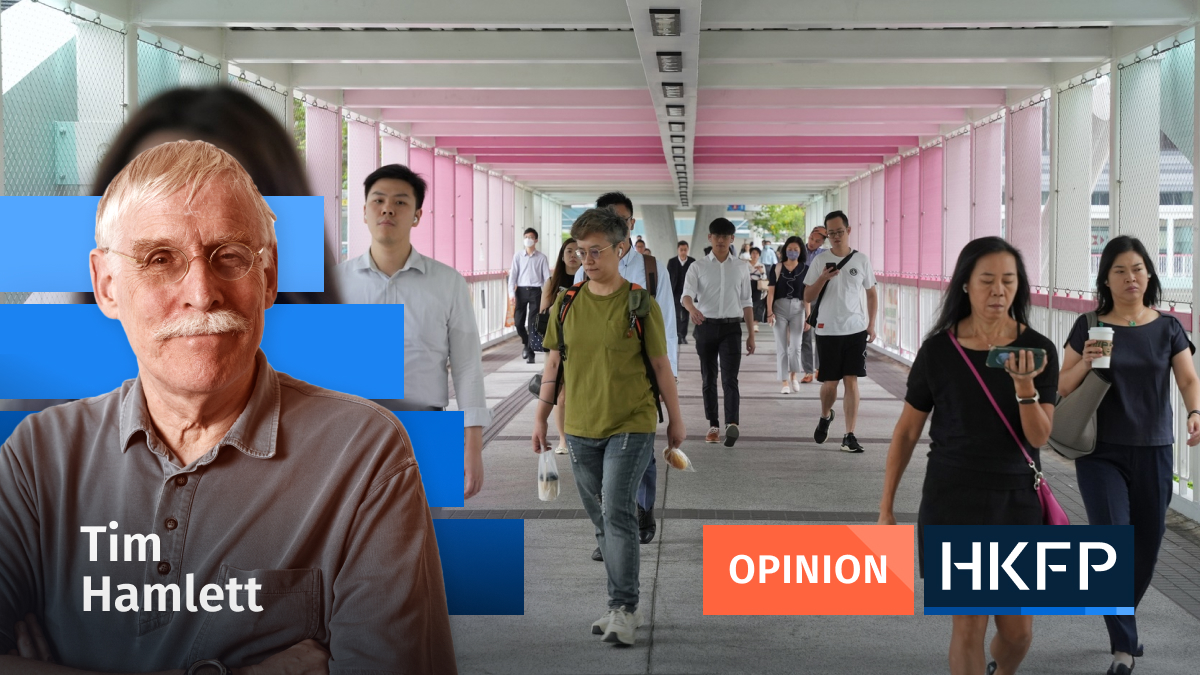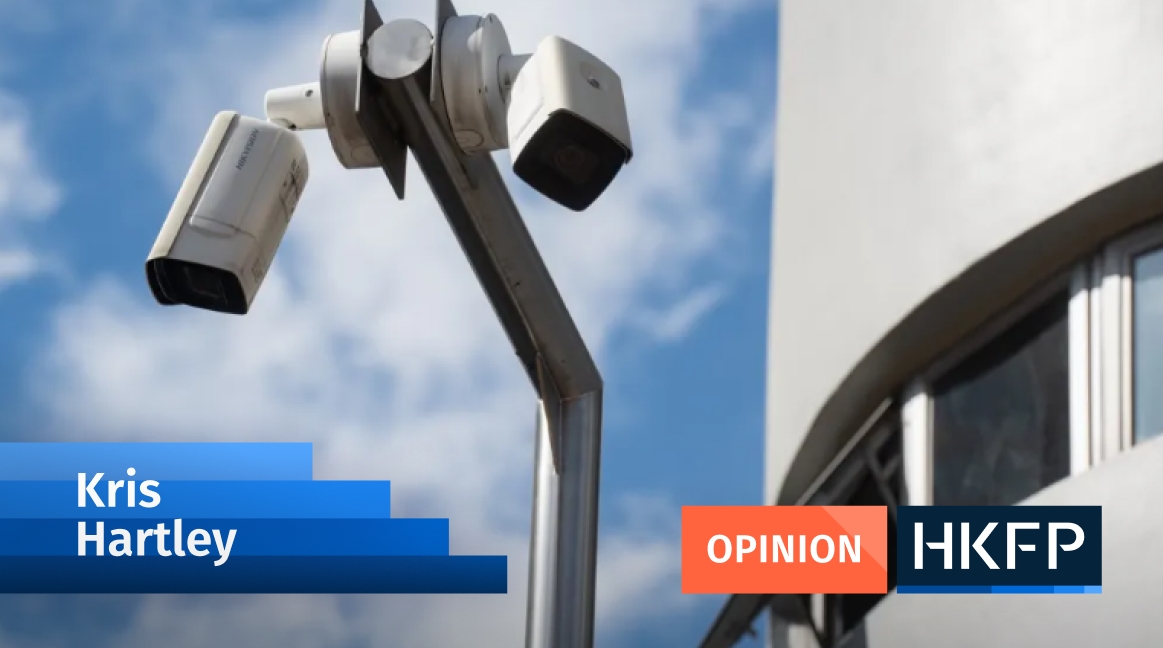To the Macau police, the International Covenant on Civil and Political Rights (ICCPR) seems to be no more than a piece of paper to be ignored as they wish, as evidenced by yet another depressing decision.
A couple of non-resident workers sought to hold a vigil or demonstration about Myanmar’s military coup. Macau police thwarted the initiative. Their reason? Non-residents do not have the right of assembly or protest. The government agreed.

This position is legally unschooled and politically revolting.
In a statement, the police based their position on the fact that the relevant 1993 statute grants the right of assembly to “residents,” combining it with the customary superficial claim that fundamental rights are not absolute and can be limited. They further claimed that the provisions of the ICCPR do not have to be followed because they do not apply directly to people, authorities and courts.
The word “residents”’ in the statute is meaningless: it was adopted well before the current concepts of permanent and non-permanent residents came to exist. It was taken by legislators as meaning those living in Macau and adopted just because Macau is not a country.
Yet, in a deliberate distortion of its meaning, Macau authorities are shrinking the comprehensive scope of the statute in violation of the Basic Law and the ICCPR.
Pursuant to the Basic Law, fundamental rights are extended to non-residents. Rights can be (i) restricted – not suppressed – (ii) only where necessary, suitable and proportionate to safeguard (iii) rights or interests protected by the Basic Law.

This police decision is not a restriction, it is a full deprivation of a right. It is not that non-residents are restricted from protesting on odd days or in a specific manner. They are entirely barred from doing it — never mind when, how or why. The language of “restriction” is nothing but pulling the wool over one’s eyes. It is a blatant, 24/7, all-encompassing policy.
In addition, these are not “restrictions” based on particular circumstances that apply in specific contexts. Instead, they are being applied to a whole category of people because they are a certain kind of people.
What is the specific right or interest safeguarded by Basic Law that would be protected by banning this fundamental right? None. Non-residency is not listed as grounds to restrict human rights.
There could never be constitutional grounds sanctioning the full deprivation of a fundamental right of nearly 200,000 people living in Macau based on the colour of their skin, religion, language, place of birth, or legal status. This is beyond illegal and unconstitutional — it is shameful and collides with any moral notion of humanity.
But it gets worse. The Basic Law provides that ICCPR provisions apply. The ICCPR grants the right of peaceful assembly, determining that no restrictions are permitted other than those “which are necessary in a democratic society in the interests of national security or public safety, public order, the protection of public health or morals or the protection of the rights and freedoms of others” (Article 21). It does not allow for a resident/non-resident discrimination and lists the reasons for restrictions.

None of these reasons could justify restricting the rights of a whole category of people because of the kind of people they are. And again, the ICCPR only consents to restrictions, it does not allow the entire deprivation of a right.
The police rhetoric may twist the meaning of “residents” in the 1993 statute and the Basic Law to handle the outrage its decision provoked. But the clearer wording of Article 21 of the ICCPR poses a conundrum.
Hence, they stated that the ICCPR “cannot be applied automatically and directly in Macau.” It can only, they argued, “be applied indirectly” through domestic legislation enacted to reproduce or regulate the content of the ICCPR. This meant, in their view, that the police did not have to respect the rights granted by the ICCPR.
Even if the police were right on this legal point (and they are not), the remarkable claim that the Macau authorities can breach an international convention — one that the Basic Law explicitly determines the government is bound by — is extraordinary. The police are unknowingly accusing the government of not transcribing the ICCPR into domestic law and, therefore, of breaching its international obligations.

What a mess! It is not that they are shooting themselves in the foot: they’re throwing grenades down their boots…
However, the police are wrong. They cannot have it all possible ways: claim that the ICCPR provisions are not directly applicable, but only through domestic legislation; not enacting such legislation in the 20-year history of the Macau Special Administrative Region (MSAR); and claim that Macau is not breaching the ICCPR. The lack of domestic legislation reproducing the ICCPR is commonsensical evidence that such laws are not required.
The ICCPR has always been directly applicable in Macau, both before and after the handover: all its inhabitants benefit from the ICCPR rights and the police and the courts are bound to secure them.
This has been confirmed by the 2000 “Core Document Forming Part of the Reports of States Parties” (HRI/CORE/1/Add.21/Rev.2, paragraphs 239-245) delivered to the United Nations (UN), where the Chinese Government declares that “one of the fundamental pillars of the Macau legal system (…) is precisely that international and domestic laws are part of the same general legal order operating simultaneously”. It further specifies that “There is no need to incorporate international law into domestic law in order to effect its application.”

It also declares that international law “is enforced in exactly the same manner as all the other laws” and that authorities, like the police, are responsible for enforcing its provisions and “can be liable for any eventual breaches.” China adds: “In the event of a conflict between international and domestic law, international agreements applicable in the MSAR take precedence over domestic ordinary law.”
Hence, if the 1993 statute stripped non-residents of the right of assembly (which it does not), it would have been overruled by Article 21 of the ICCPR. It is because this is as clear as day that the police want to sell the idea that the ICCPR is not directly applicable.
The 2010 “Core Document” (HRI/CORE/CHN-MAC/2010, paragraphs 79-80) closes the matter by asserting that human rights provided for in international treaties “can be directly invoked,” the “legislature, the executive and the judiciary are bound by them,” and “international law is directly integrated and prevails over ordinary law.”
The contradiction is unmistakeable. The Macau police say the ICCPR is not directly applicable. The PRC says that it is directly applicable. Being directly applicable is hugely important because, in the PRC’s words, everyone can invoke the ICCPR, the police must submit to it and laws contravening its provisions are not applicable.

Macau authorities have calculatingly disregarded the distinction between demonstration and freedom of expression in order to impede freedom of expression. Walking with a “Tiananmen Massacre” sticker is deemed a demonstration and two people sitting in public to discuss politics constitutes an assembly. For non-residents these are now criminal offences.
Non-residents have seen their rights increasingly eroded, even suppressed, by Macau authorities. This is another step in that inhumane and shameful path.
However, by declaring that they are not bound by the ICCPR provisions, Macau authorities are aiming well beyond the rights of non-residents and the right of assembly. They are slowly paving the way to limit the rights of residents and non-residents alike regarding innumerable fundamental rights safeguarded by the ICCPR and an array of court decisions from around the globe.
Is Macau so eager to sidestep its obligations under the ICCPR that it is ready to refute the PRC’s previous commitments to the UN? Who would ever have thought we would be resorting to declarations by the authoritarian Chinese government to get the Macau government to take human rights seriously?
Support HKFP | Policies & Ethics | Error/typo? | Contact Us | Newsletter | Transparency & Annual Report | Apps
| HKFP is an impartial platform & does not necessarily share the views of opinion writers or advertisers. HKFP presents a diversity of views & regularly invites figures across the political spectrum to write for us. Press freedom is guaranteed under the Basic Law, security law, Bill of Rights and Chinese constitution. Opinion pieces aim to point out errors or defects in the government, law or policies, or aim to suggest ideas or alterations via legal means without an intention of hatred, discontent or hostility against the authorities or other communities. |
Help safeguard press freedom & keep HKFP free for all readers by supporting our team

More HKFP OPINION:
HKFP has an impartial stance, transparent funding, and balanced coverage guided by an Ethics Code and Corrections Policy.
Support press freedom & help us surpass 1,000 monthly Patrons: 100% independent, governed by an ethics code & not-for-profit.










